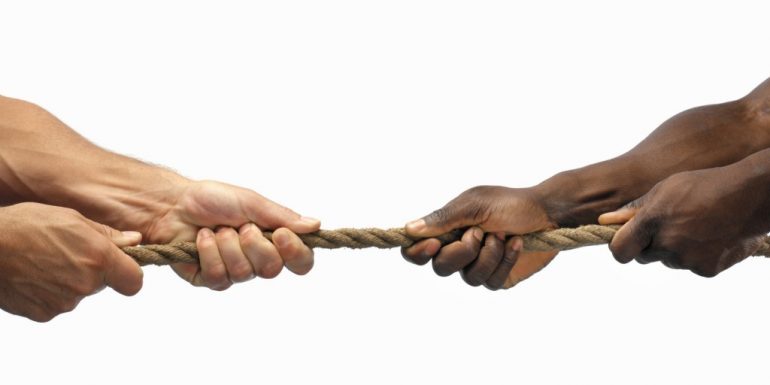Once upon a time there was a country ruled by royalty and the wealthy and landlords. The royals owned land around the world and oppressed people. The people tired of forced rule and wanted freedoms, particularly religious freedom.
The Europeans had colonized the world. For economic reasons, seeking more territory and seeking new settlements, the traveler, Mr. Columbus, arrived in a New World instead of arriving in Japan as originally intended in 1492. He was lost and his “discovery” was an accident. The Spanish Crown supported the Italian’s adventures.

Freedom of worship, freedom of choice, freedom of speech were new ideas bound for a new world. They left Europe and came to a new country across the water that they would call America, where Native Americans lived.
They made up new rules, new laws and even a new constitution, that said all men were equal and had the right to the pursuit of happiness as they saw fit. The Constitution provided beautiful elegant words on a document, but they omitted women and people of any color. They meant the white man exclusively.
The New American
Europe was the world leader at that time and those who broke away were real mavericks. As they sought a new land, they were ruthless in their pursuits.
The new land needed workers. So, these traveling Europeans went to the continent of Africa and found another people. They were black people in skin color; they spoke a different language, and had a different culture. They paid some of the Africans to sell other Africans to the new white Americans.
These people were treated with brutal force as they were captured. They were shackled mostly in nudity as they crossed the water for what would be a trip of no return. They were treated badly in the slave ship with little food and little water. They were packed liked sardines.
Some died as they made the voyage. Some of the women killed their babies before allowing them to be mistreated. Some committed suicide by jumping in the ocean.
These people were held captive for centuries. They worked for the White Europeans in America in many capacities, including the hard labor of toiling the land and picking cotton and tobacco. They were domestic workers, they were cooks and everything else involving work that the Europeans did not want to do in this new agricultural world.
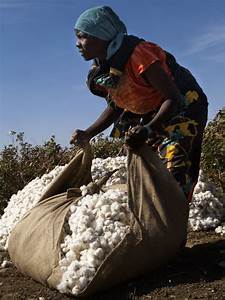
They were not paid a wage. The provided free labor as the whites built the economy. They called these captive people slaves. They were not Africans anymore. They were not Europeans. They were not immigrants. They were captured people living in a country against their will.
But these people adjusted in unique ways as their families were destroyed and as they were bred like animals. They were told they were inferior and stupid…and the sick mentality of “white supremacy” and “black inferiority” were born.
These original Africans developed as a new people, a new culture that was mixed, and they were branded as Negroes, Blacks and African Americans. The slave masters, the owners of the slaves, beat the newcomers when they didn’t do what they wanted.
The whites were cruel. They raped the women; they beat the men. They sold the people like they were animal stock; they even bred the people to ensure a strong future work force and the Black people multiplied. They humiliated the people, they scared the people, and they instilled the concept of fear in the people that still lasts.
Black skin became inferior because the Europeans said so. They created myths about the Black people. The slaves were not allowed to marry; they were not allowed to read, to go to school and to do the simple things that the Europeans founded America on. At some point these people weren’t even considered to be human beings. This was the introduction of racism in America and the racial divide that still exists today.
The Constitution provided beautiful elegant words on a document, but they omitted women and people of any color. They meant the white man exclusively.
Plantation Politics
These Black descendants of the original stolen Africans became docile, wallowing in negative concepts about themselves. They were afraid to speak up, to address some of the inhuman things that were happening to them.
They were afraid to fight. They were guilty of whatever the slave master said they were guilty of, even when they didn’t do it. White people were masterful in brainwashing a people into believing that they were the scum of the earth as they tried to adapt to the new ways in this new land.
Some of the slaves, particularly the men, bucked slavery. They ran away, only to be hung or to have their limbs chopped off if they were captured. If the Black slave escaped from the plantation misery, they were hunted like animals.
These people were allowed to work, but were kept from books. They made laws that kept the black from participating in the main society – reading was illegal, marriage was not recognized, interracial marriage was illegal, and the like.
The whites were always afraid that these Blacks would rebel with violence because they were strong and healthy and were mistreated. They ate natural food and through the harsh labor exercised and kept some of the positive ways from their native land. But the slaves for the most past accepted the mistreatment.
There were levels of masters – the immediate boss, the middle boss, and then the owner, the big boss. This was the beginning of plantation politics. The big boss issued the “favors” to some of the slaves if they performed well.
The slaves created a new culture, too – there were the slaves that worked in the fields, the slaves that worked in the house, and the slaves that provided personal favors to master, particularly women. They were sometimes called “comfort women” and the men were called “Uncle Toms” because they favored master over the slave.
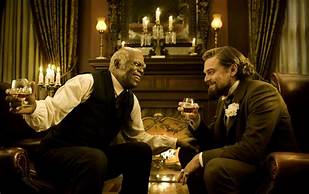
Often, master mated with the slave woman and another family was born – master’s family within the family – and yet another people were bred, half white and half black.
Because of this dynamic, the skin color of the slaves began to change. There were light skinned slaves (mulattos) who were master’s children; there were brown children (mixed); and then there were the dark slaves (no master intervention).
A new class of Black people came into being. The master felt guilty and proud of his “other” children and began to set up schools for them and to teach them to read so that they could participate in society as productive, but limited, citizens.
They learned crafts like carpentry, building, horse husbandry, planting, gardening, and the women became proficient with the culinary arts, childcare, sewing, washing and ironing and house cleaning.
They were special slaves, often with master’s blood, who worked in the plantation house. Sometimes these special slaves were not known to belong to their masters. However, it was known, though not necessarily documented.
Comes The Black “Minister”
Then a war came and the slaves were needed to fight the war, so the South could win and control the agriculture states. Now, for the first time, the slaves were considered to be real men and American citizens and some of the freedoms they had been denied they were awarded, like wages for their armed services, like marriage, like reading and writing, like welfare.
However, some of the whites were afraid to give the slaves guns, because they feared they would turn on them for their reckless and wicked and cruel past behaviors. So they needed a person who could communicate to the slaves and to whites and maintain civility.
Thus, the Black “minister” was created. This was often a man, who may have been master’s child, who taught the slaves the Bible. They taught inferiority and that freedom would come one day in heaven in the afterlife. They taught obedience, docility and manners.

The minister was the go between. He was the one to make peace, to arbitrate. He kept the slaves at bay and in check as he provided a “new morality.” But he also kept the slaves sane with fiery sermons.
Eventually the slaves were considered to be 3/5 humans, and could participate in the voting process, because the southern states needed the votes to maintain control of the new union. The minister often taught the slaves how to vote.
The slaves had a choice between two parities, Republicans and Democrats, but those parties are not like we know them today. Most of the slaves were Republicans. President Abraham Lincoln issued the Emancipation Proclamation on January 1, 1863 granting the slaves freedom.
The voting favor turned to him because of his humanitarian deed that gave the slaves freedom with the Executive Order of the Emancipation Proclamation. And then the minister began to tell the slaves who to vote for, so that the whites could maintain power.
Some of the slaves continued to work the land and made business arrangements with their former masters and became sharecroppers, which meant they worked the land and owned some of the crop at the end of the year.
It was an exploitive system, but at least the slaves had a home, food, shelter and clothes. This was the landscape of Black reality coming out of slavery, with nothing, not even the government promise of “40 acres and a mule.”
The Migration
Some of the slaves moved on, tracking to the North, in what was called the “Great Migration.” There was an upgrade of jobs and work, better pay and better living as a new era was ushered in as the Industrial Age.
Automation was taking place and work was in the factory and easier to do with a considerable upgrade in wages and living conditions. The people were still exploited, but in a different way. A better exploitation was discovered as the people created the blues and jazz.
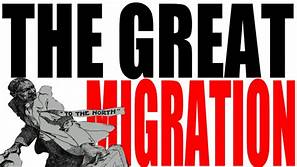
The Southerner turned Northerner moved into the cities during the migration with vigor. They found a new land where they were treated like human beings. They segregated in certain neighborhoods, living in kitchenettes, but were introduced to a better life overall. Segregation took a new turn from the fields to certain city settlements.
The northern Black began to vote for people who were helpful. The new northerner even began to run for office so that he could negotiate for his people and pass laws that would produce freedom and opportunities. The politicians began to notice this voting power and the Black-voting block.
The southerners began to suppress the vote by having different rules for Black voters, like how many bubbles were in a bar of soap, or how many jellybeans were in a jar, or like reading the constitution of the United States to illiterate whites. They even went so far as to kill people who were trying to vote.
Enters the King
And then a minister came along who acted like a King, and he said to the Blacks we don’t have to take this treatment. We have the power that God invested in us. He talked a different language and he began to march in protest. He began to boycott.
His words were powerful and reached throughout the land as TV cameras and northern white media began to tell his story and document Negro actions. And then the former slave, in the south, began to stand up. He began to vote. He began to rebel against the segregation and the overall ill treatment. He won. It was a slow win, but it was a win.
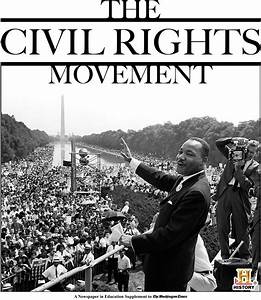
Eventually they killed the King and those like him. Afterward, some of those Blacks who came from the slave lineage began to prosper off of the sacrifices of those who fought long and hard for new freedoms and opportunities. Some of those with slave legacy thought they were free to live in this new land of America with all of the comforts and luxuries.
And then something strange happened. The so-called millennial generation discarded the people who were with the King in what became known as the Civil Rights Movement.
And then they stopped voting. They didn’t see the importance and the social or cultural impact. They even made fun and ridiculed the Civil Rights people, as they made movies and sang songs about the era that cursed what some thought were untouchable.
But then, rather than hang them, the police began to shoot young Black men down in the streets and arrest them and treat them with the same cruelty as the slave master, but under a new name. The young Black men were jailed and jailed and jailed, until the Black women had no one to marry and families couldn’t be created.
And then the millennials began to see things differently. And then some began to march again, to protest the white oppression that had been rendered in a friendly fashion. And then the whites began to justify closing schools, and having rats in schools, and a lack of resources in Black communities, and police shootings of young Black men, and on and on.
Suddenly the millennials, the highly educated generation, began to see the value of the vote. And they voted again. And they marched again. And then things changed, again.


